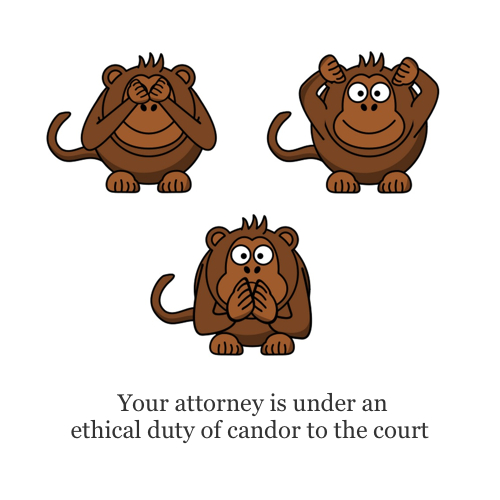What You Are Not Told During Bankruptcy

When a person files bankruptcy, he is bombarded with information from his attorney, the bankruptcy court, the bankruptcy trustee, and credit counseling agencies. However, there are some important things that an individual is not told during the bankruptcy process. Let’s take a look at a few of these “bankruptcy secrets”.
What the Bankruptcy Court Will Not Tell You
The bankruptcy court doesn’t report to credit bureaus. While one of the chief benefits of bankruptcy is a “fresh start,” the bankruptcy court does not report your bankruptcy discharge to the credit bureaus.
It is up to you to ensure that your credit report is accurate and up to date. The best advice is to request a completely free credit report from Trans Union, Experian, and Equifax at https://www.annualcreditreport.com. Get these free reports after your discharge and dispute erroneous information contained in your files.
You are at a disadvantage without an attorney. The bankruptcy court will not tell you that you are better off with an attorney representing you in your bankruptcy case. The bankruptcy laws are complicated, even for seasoned attorneys, so common sense should tell you to hire counsel.
Additionally, without an attorney representing the accuracy of the bankruptcy petition and schedules, the bankruptcy trustee will scrutinize your case and will presume that you have made errors. While licensed attorneys will receive email updates concerning the case, you will receive notice through the mail and will not be able to file responses electronically.
This is not only inconvenient, it will also cause you delay and additional expense.
What the Trustee Will Not Tell You
You can keep assets that are of no value to the bankruptcy estate. The Chapter 7 bankruptcy trustee is charged with finding assets that can be taken and sold to pay your creditors. However, certain assets have little or no practical value (called “de minims,” Latin for very little value). For example, your prized Beanie Baby collection that is worth $500 on eBay is of no interest to the trustee.
Even if a buyer was ready and able to pay $500 for the collection, the trustee must make an accounting, open a bankruptcy estate, collect assets, send notices, and finally distribute money top creditors. The trustee expects to be compensated for his time, but with only $500 available, there is a good chance that the trustee may consider working at far below his hourly rate not worth the effort.
Another example is a horse that is worth $1,000. The trustee must consider the costs involved in taking and selling the horse, which means hiring outside help and paying for expenses. If the trustee cannot find a quick buyer, he could end up owing money! In these situations the bankruptcy trustee will “abandon” the estate’s interest in an item that has little or no value to creditors.
The trustee will not give you legal advice. The trustee is prohibited from giving you legal advice. That is the case even if you are representing yourself and made a very obvious mistake, or you have hired a putz of an attorney.
Your attorney can not tell you to lie, conceal, or hide assets. Your attorney is under an ethical duty of candor to the court, which includes the attorney’s certification on your bankruptcy petition and schedules. This ethical duty also extends to quasi-judicial proceedings where testimony is given under oath. Telling your attorney your intent to hide your gold Rolex watch from the bankruptcy trustee is the same as asking him to lie for you – he cannot and will not do it.
Your attorney cannot advise you on how to break the law. This one is pretty obvious. For instance, your attorney cannot tell you how to take out payday loans that you do not intend to repay. This is a criminal acts and your attorney is under an ethical duty and a legal duty to not instruct you how to commit a crime.
Your attorney cannot advise you on how to commit fraud. This is less obvious and sometimes the line is blurred. For instance, an attorney cannot instruct you on how to go on a shopping spree with your credit cards before filing bankruptcy and stay out of trouble. However, your attorney can discuss the pros and cons of incurring more debt in order to improve your chances in bankruptcy.
Your attorney cannot counsel you on how to “abuse” the bankruptcy system. Congress made a large public showing out of “bankruptcy abuse” during the debates that led to the 2005 revisions to the Bankruptcy Code. What exactly is “abuse” and “not in good faith” are as hard to nail down as the Supreme Court trying to define hard core pornography (Justice Potter Stewart once said, “I know it when I see it.”).
Your attorney cannot generally counsel you on how to use the protections of the Bankruptcy Code to frustrate creditors and achieve a beneficial result for the debtor, as in multiple “sham” filings. However, the legal and ethical use of the federal laws for your benefit during your bankruptcy case is encouraged.




